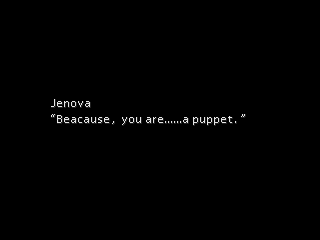Madn said:
I assume you believe that Caesar existed, but you have no tangible proof of it, just written records |
It contains supernatual content.
Do you think that there is a God? | |||
| Yes | 37 | 34.91% | |
| No | 40 | 37.74% | |
| It's likely | 6 | 5.66% | |
| It's not likely | 13 | 12.26% | |
| Not after what you just wrote! | 1 | 0.94% | |
| See results | 9 | 8.49% | |
| Total: | 106 | ||
Madn said:
I assume you believe that Caesar existed, but you have no tangible proof of it, just written records |
It contains supernatual content.
I dont believe in any religion becoz they're absurd, I do believe that there is a god like creature. I also believe that there are other aliens like humans just like in Mass Effect. I believe we will achieve faster than lightspeed at some point in our history, maybe 100 years or 1000 years down the road.


IIIIITHE1IIIII said:
Underlined: Russell's teapot. |
"Russell's teapot"? Really? Hilarious.
Belief and understanding of the afterlife is not something based in facts or empirical evidence or, I accept this.
You however, place value in 'facts' i.e. empirical evidence, so the burden is on you to produce facts in this argument to support your belief. The fact is, both of our claims are unfalsifiable, but you are the one that places value in empirical evidence, and you are the one that must therefore produce 'facts' for your own argument, by your very own claim, to be valid.
But you cannot, so you defer to a rather ridiculous philosophical concept to make your lack of an argument seem acceptable.

Sal.Paradise said:
"Russell's teapot"? Really? Hilarious. Belief and understanding of the afterlife is not something based in facts or empirical evidence or, I accept this. You however, place value in 'facts' i.e. empricial evidence, so the burden is on you to produce facts in this argument to support your belief. The fact is, both of our claims are unflasifiable, but you are the one that places value in empirical evidence, and you are the one that must therefore produce 'facts' for your own argument, by your very own claim, to be valid. But you cannot, so you defer to a rather ridiculous philosophical concept to make your lack of an argument seem acceptable. |
I said Russel's teapot since there are no evidence of a heaven, hell or God. It is up to believers to prove that they exist.
I based all my theories on unproven matter just to be able to comunicate with the believers. This whole thread is supposed to be a problem for those who believes in an afterlife.
I believe in God, but I'm a deist so I have no damn clue what happens or if God even gives a shit about what we do in our lifetime.
It depends on the religion. Some religions believe that God's existence is embedded into the essence of everyone and that the only reason someone doesn't believe him/her/it is because they choose to. What religion you talking about?
| Jay520 said: It depends on the religion. Some religions believe that God's existence is embedded into the essence of everyone and that the only reason someone doesn't believe him/her/it is because they choose to. What religion you talking about? |
Judaism and Christianity, mainly.
IIIIITHE1IIIII said:
It may take some of his pressure off if we do some of the judgement for him! |
After thinking about it i now realize how much work takes to be a god, sure he/she/it would appreciate some help n_n
IIIIITHE1IIIII said:
I based all my theories on unproven matter just to be able to comunicate with the believers. This whole thread is supposed to be a problem for those who believes in an afterlife. |
There is evidence of a hell, heaven, a God etc, the problem for many people is that the evidence is not empirical, and many people only subscribe to that form of knowledge. It is a fundamental problem that will never be resolved. Scripture and religious experience is just as valid as 'proof' for the believer as empirical knowledge is to the atheist. This is why Russell's teapot fails, not to mention the fallacy of unfalsifiable claims not being valuable information, among other reasons.
Your second sentence is fine, accepting traditional science has nothing to contribute to this argument.
I still think it's funny that you would ridicule or pity a religious person for believing in a heaven or hell etc with zero empiricial evidence when you cannot produce any against its existence either. Teaching that something does not exist without any evidence also, to you, should qualify as 'teaching stories as facts'. But then, it's easy to make jokes at someone's expense, actually thinking about what is actually being said behind those statements takes more effort.

Why would anyone want to do this to another human being. Plus it is impossible for a human to live by itself for the first year or two. Someone or something needs to feed it, etc. So it will have interaction with someone or something, thus this situation doesn't make sence.